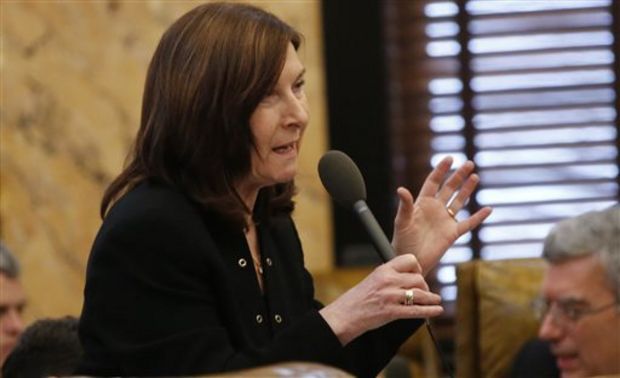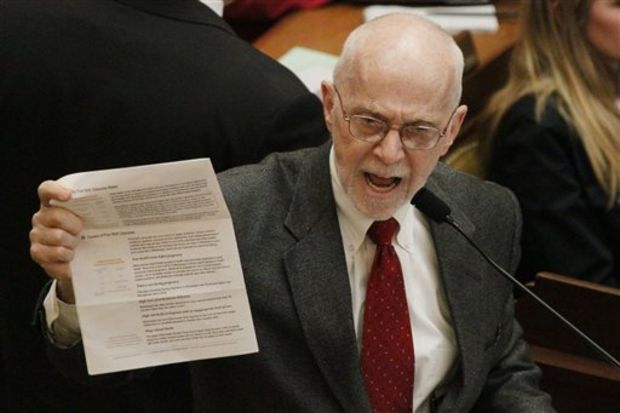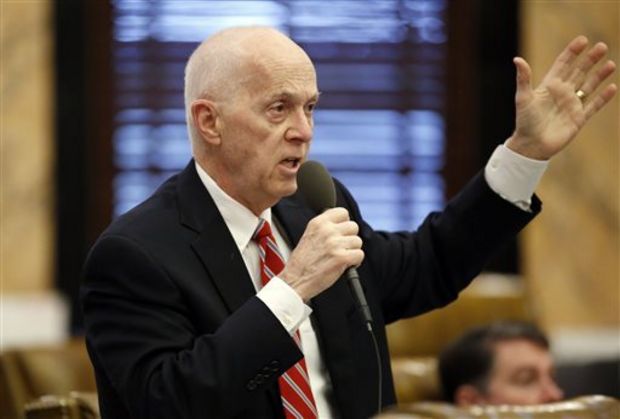

JACKSON, Mississippi (AP) — The Mississippi House Thursday passed a bill meant to ensure teachers get a full paycheck in August, but school board leaders say they don’t believe the proposal is legal.
The dispute is wrapped up in an effort by school boards and superintendents to roll back a 2012 legislative mandate that classes can’t start before the third Monday in August. Those who want schools free to start earlier have been using the paycheck problem to push lawmakers for repeal.
House Bill 71, passed on a 120-0 vote, directs school districts to pay all employees in equal monthly installments. It’s meant to end problems created by a recent attorney general’s opinion saying that full August paychecks would violate the state Constitution’s ban on paying employees for work not yet performed.
An amendment to the bill Thursday on the floor of the House also attempts to guarantee equal monthly paychecks for non-licensed employees including custodians, bus drivers and assistant teachers. But even House Education Committee Chairman John Moore, R-Brandon, said that amendment may not be legal. Non-licensed employees are treated as hourly employees, creating legal complications in trying to spread out their pay in equal installments.
Typically, a teacher’s yearly contract begins Aug. 1, and they get their pay in 12 equal monthly checks, even though they don’t work during the summer. For a 187-day contract, that works out to 16 days of work each month. But in 2014, schools can start Aug. 18. With 10 days of school and maybe three days of preparation, a teacher likely won’t have done 16 days of work.
That would mean less than a full paycheck in August, although the remainder of the pay would be made up in following months. Last year, superintendents said they were worried that employees could see a cash crunch.
Mike Waldrop, executive director of the Mississippi School Boards Association, said Wednesday the group believes the proposed law can’t overcome the constitutional prohibition.
“You still pay people for time unworked and that’s a violation of the Constitution,” he said. “Constitution trumps state law.”
Moore said school boards and superintendents are trying to nit-pick the proposed solution. He said Attorney General Jim Hood’s office has advised him that the proposal would solve the problem.
“If the attorney general says it fixes it, it fixes it in my opinion,” Moore said.
He said districts are trying to pressure lawmakers on the school start date.
“At this point, they want the school start date back where it was,” Moore said. “If they don’t want to pay their school teachers, that’s their problem. The Legislature is saying they can.”
Waldrop said districts are only trying to follow the law.
“We want to see the teachers get paid,” he said.
Even if the solution is legal, non-licensed employees may not get monthly installments. Waldrop said that even before the legal opinion, his association advised districts that it’s only legal to pay those workers over the summer if the district withholds money from earlier paychecks, like a savings plan.
Moore said lawmakers want a solution for non-licensed employees, but said Thursday’s amendment may not pass muster.
“I’m not so sure about non-licensed employees,” Moore said.



